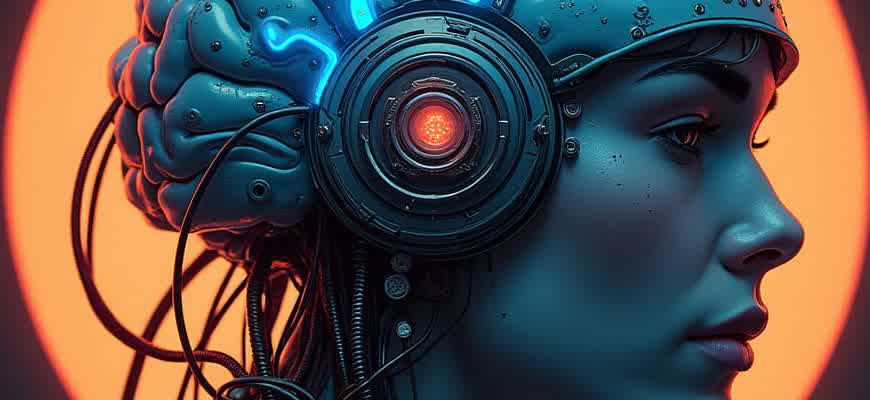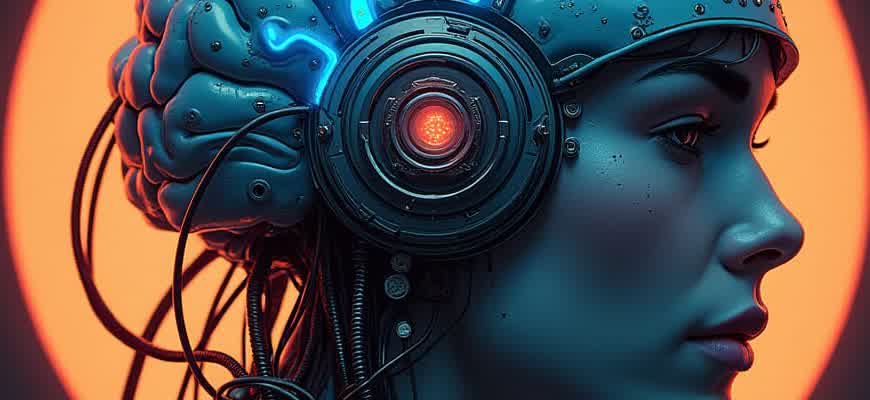
In the digital age, marketing videos have become a crucial element for engaging audiences. With the rise of artificial intelligence, businesses can now create compelling video content more efficiently. AI tools help streamline the video creation process, reducing both time and cost while maintaining high quality. These tools offer automated video editing, scriptwriting, and even voiceovers, providing marketers with more creative freedom.
There are several key features that AI tools bring to the table for video production:
- Automated Video Editing: AI-powered platforms can quickly edit raw footage by trimming, adjusting transitions, and applying effects based on pre-set rules.
- Script Generation: Using natural language processing, these tools can generate scripts tailored to specific marketing goals and target audiences.
- Voiceover and Audio Editing: AI-generated voiceovers can be customized to suit different tones and accents, offering a range of vocal styles for diverse campaigns.
“AI-driven video creation not only saves time but also enhances creativity by providing marketers with endless possibilities for customization.”
Here is a comparison of some of the most popular AI video tools:
| Tool | Key Features | Pricing |
|---|---|---|
| Runway | Real-time editing, text-to-video, AI-based animation | Subscription-based, starting at $15/month |
| Lumen5 | AI-generated scripts, automatic scene selection, social media optimization | Free tier available, paid plans from $19/month |
| InVideo | Template-driven video creation, AI voiceovers, video resizing | Free version, premium plans from $15/month |
- How AI Tools Are Transforming Marketing Video Production
- Key Benefits of AI in Marketing Video Production
- How AI Streamlines Video Production
- Comparison of Traditional vs. AI-Driven Video Creation
- How AI Can Help Automatically Generate Video Scripts
- Steps to Use AI for Video Script Generation
- Key Benefits of AI-Generated Video Scripts
- AI Script Generation in Action
- Integrating AI-Based Voiceovers into Marketing Videos
- Benefits of AI-Generated Voiceovers in Marketing Videos
- How AI Voiceovers Improve Marketing Strategies
- Comparison of AI Voiceover Tools
- How AI Analyzes Audience Preferences for Tailored Video Content
- Key Factors AI Uses to Understand Audience Preferences
- AI-Driven Video Content Creation Process
- Examples of AI-Powered Tools for Audience Analysis
- Time-Saving Benefits of AI in Video Editing for Marketers
- Key Advantages of AI in Video Editing
- Examples of Time-Saving AI Features in Video Editing
- AI in Action: Time Savings at a Glance
- How AI Enhances Video Length and Structure for Better Engagement
- Key Benefits of AI for Video Structure Optimization
- AI in Action: Video Length and Structure Adjustments
- AI-Driven Visual Effects: Elevating the Quality of Your Promotional Video
- Key AI Visual Effects Capabilities
- Steps to Integrate AI Visual Effects into Your Marketing Video
- Comparison of AI Tools for Video Effects
- How AI Enhances Video Performance Tracking and Boosts ROI
- Key Benefits of AI for Video Performance Tracking
- How AI Improves ROI Through Video Content
- Performance Tracking Metrics for Better Decision-Making
- AI-Driven Insights for Strategic Video Improvements
How AI Tools Are Transforming Marketing Video Production
Artificial Intelligence has made a significant impact on various industries, and marketing video creation is no exception. AI tools streamline the process of producing high-quality videos, making it easier for businesses to create engaging and targeted content without needing extensive video production experience. With the help of AI, marketers can now automate many aspects of the video creation process, from scriptwriting to editing, and even personalizing content for different audiences.
These tools reduce the time and resources required to produce professional-grade marketing videos. AI algorithms can analyze large amounts of data to identify trends and preferences, allowing marketers to generate content that resonates with specific customer segments. As a result, businesses can create more effective marketing campaigns, increase engagement, and drive conversions without relying on traditional, time-consuming methods.
Key Benefits of AI in Marketing Video Production
- Time Efficiency: AI tools automate repetitive tasks such as editing, resizing, and voiceover generation, cutting down production time significantly.
- Cost-Effective: Reduces the need for professional video editors, voice actors, and other expensive resources.
- Personalization: AI can tailor videos based on user data, creating unique content for each audience segment.
- Data-Driven Insights: AI analyzes viewer behavior, optimizing content to boost viewer retention and conversion rates.
How AI Streamlines Video Production
AI tools break down the video production process into simple steps. Here’s how they help marketers:
- Script Generation: AI can automatically create scripts based on marketing goals and target audience data.
- Video Editing: AI can edit raw footage, removing unnecessary parts and optimizing for pacing and engagement.
- Voiceovers & Subtitles: AI-generated voiceovers can match the tone and language of the brand, and subtitles are automatically created for accessibility.
- Visual Enhancement: AI can enhance visuals by applying filters, adding animations, and adjusting lighting and color balance.
“AI tools enable businesses to create professional videos at a fraction of the time and cost, making high-quality content accessible to even the smallest companies.”
Comparison of Traditional vs. AI-Driven Video Creation
| Aspect | Traditional Video Production | AI-Driven Video Production |
|---|---|---|
| Time | Weeks or months for completion | Hours or days |
| Cost | High (requires professionals) | Low (minimal human involvement) |
| Personalization | Limited, generic | Highly personalized, data-driven |
| Automation | No automation, manual effort required | Full automation, AI-powered tools |
How AI Can Help Automatically Generate Video Scripts
Generating compelling video scripts manually can be time-consuming and challenging. Fortunately, with the development of AI-powered tools, marketers can automate this process, saving time and ensuring consistency. These tools analyze content data and target audience preferences to create personalized scripts that resonate with viewers.
By leveraging natural language processing (NLP) and machine learning, AI can produce script drafts that reflect key brand messages, incorporate the latest trends, and optimize for engagement. Here’s how you can effectively use AI to generate video scripts automatically.
Steps to Use AI for Video Script Generation
- Choose the Right AI Tool: Select a platform that offers script generation based on your needs–whether it’s a product demo, explainer video, or promotional content.
- Input Key Information: Provide the AI with important details, such as the target audience, video objectives, and any specific brand guidelines.
- Let the AI Generate the Draft: The AI tool will process the input and create an initial draft, adjusting tone and style to match your requirements.
- Review and Edit: Although AI can generate effective scripts, human oversight is still needed to refine the tone and ensure accuracy.
Key Benefits of AI-Generated Video Scripts
- Time Efficiency: Automates the scriptwriting process, reducing time spent on brainstorming and writing from scratch.
- Consistency: Maintains a consistent tone and messaging across multiple videos, ensuring brand coherence.
- Personalization: Tailors content based on the preferences and behaviors of your target audience, leading to higher engagement.
AI Script Generation in Action
| Step | Action | Outcome |
|---|---|---|
| Input Data | Provide AI with details like keywords, audience demographics, and tone | Personalized script outline |
| AI Processing | AI analyzes input and generates script suggestions | Draft script based on analysis |
| Human Review | Adjust tone, add unique brand messaging | Refined and finalized video script |
AI tools not only save time but also provide valuable insights based on data analysis, helping create scripts that are optimized for engagement.
Integrating AI-Based Voiceovers into Marketing Videos
With the rise of AI technologies, integrating voiceovers into marketing videos has become faster, more efficient, and more customizable. Traditional voiceover work often involves hiring professional voice actors, which can be time-consuming and costly. AI-based voiceover tools, however, provide a scalable solution that delivers high-quality, natural-sounding voices without the logistical complexities of hiring talent. This is especially beneficial for businesses that need to produce videos quickly and at a lower cost.
AI voiceover technology allows brands to seamlessly add audio to their visual content, enhancing the overall viewer experience. By using neural networks and machine learning, these AI tools can replicate human intonation, emotion, and accents, giving marketers the flexibility to produce content in multiple languages or dialects without additional voice talent. This makes it easier to reach diverse audiences and tailor messaging for different market segments.
Benefits of AI-Generated Voiceovers in Marketing Videos
- Cost-effective – AI eliminates the need for voice actor fees and reduces production costs.
- Scalability – Easily generate voiceovers for numerous videos without compromising quality.
- Customization – Adjust tone, speed, and emotion to match the brand’s voice and audience preferences.
- Speed – Generate voiceovers in minutes, reducing the overall production time of marketing campaigns.
How AI Voiceovers Improve Marketing Strategies
- Localization: AI voiceover tools can quickly adapt content for different languages, making global marketing campaigns more effective.
- Consistency: With AI, brands can ensure a consistent tone and style across various videos and platforms.
- Personalization: Marketers can customize voiceovers to resonate with specific customer segments, increasing engagement.
AI-driven voiceovers are a game changer in marketing, enabling brands to produce professional-quality videos at scale, on time, and within budget.
Comparison of AI Voiceover Tools
| Feature | Tool A | Tool B | Tool C |
|---|---|---|---|
| Languages Supported | 10 | 20 | 15 |
| Voice Customization | Yes | No | Yes |
| Speed of Output | Fast | Moderate | Fast |
How AI Analyzes Audience Preferences for Tailored Video Content
Artificial Intelligence (AI) plays a crucial role in understanding audience behavior and crafting content that resonates. By leveraging vast amounts of data, AI tools can assess user preferences, consumption patterns, and emotional responses to various media forms. This enables marketers to create videos that are more aligned with the needs and desires of their target audience. AI-driven platforms collect real-time feedback and refine content strategies to ensure higher engagement and relevance.
In order to produce highly targeted video content, AI analyzes a variety of factors such as viewer demographics, past interactions, and trends in content consumption. By segmenting audiences based on this data, marketers can ensure their video content reaches the right people at the right time, increasing the chances of conversion and viewer loyalty.
Key Factors AI Uses to Understand Audience Preferences
- Demographic Data: AI collects information on age, gender, location, and more to categorize viewers into segments.
- Content Interaction: AI tracks likes, comments, shares, and viewing duration to gauge which content types appeal most.
- Sentiment Analysis: AI interprets emotional tone in audience reactions to determine preferences for humor, excitement, or drama.
- Consumption Patterns: AI tracks when, how, and where users engage with videos, helping marketers optimize timing and format.
AI-Driven Video Content Creation Process
- Data Collection: AI gathers large sets of audience data from multiple sources.
- Segmentation: Based on this data, AI identifies key audience segments with similar interests and behaviors.
- Content Generation: AI uses predictive models to suggest content ideas that will resonate with these segments.
- Optimization: The content is tested in real-time, and adjustments are made based on ongoing feedback.
“By leveraging AI’s ability to adapt to changing trends and audience behavior, marketers can create highly personalized video content that feels relevant and timely to each viewer.”
Examples of AI-Powered Tools for Audience Analysis
| Tool | Purpose | Key Feature |
|---|---|---|
| Vidooly | Audience Analysis | Provides insights on viewer behavior and engagement patterns across multiple platforms. |
| IBM Watson | Sentiment Analysis | Analyzes social media posts and comments to gauge public sentiment towards specific content. |
| Google AI | Personalized Recommendations | Recommends videos based on individual user interests and viewing history. |
Time-Saving Benefits of AI in Video Editing for Marketers
AI-powered video editing tools have become an essential asset for marketers aiming to produce high-quality content without spending excessive time on manual editing tasks. These tools help automate the time-consuming aspects of video production, making it easier for marketers to focus on strategy and creative direction. With AI, marketers can generate polished videos in a fraction of the time compared to traditional editing methods.
By using AI video editing tools, marketers can reduce the complexity of various stages in video production, such as cutting, trimming, adding transitions, or even generating captions. These features significantly cut down on post-production hours and increase efficiency, allowing teams to deliver content faster and more consistently.
Key Advantages of AI in Video Editing
- Automated Video Cropping: AI tools can automatically crop footage based on composition, ensuring a polished result without manual adjustments.
- Smart Color Correction: AI can adjust lighting and color grading in real time, streamlining what would otherwise be a labor-intensive task.
- Audio Enhancement: With AI, background noise can be removed, and audio quality enhanced with minimal user input.
- Intelligent Scene Detection: AI analyzes video content to detect key moments, enabling automatic scene transitions that save time during editing.
Examples of Time-Saving AI Features in Video Editing
- Automatic Video Assembly: AI can quickly assemble video clips based on pre-set templates or user preferences, cutting the editing time significantly.
- Real-time Subtitles and Transcriptions: AI tools generate subtitles instantly, making videos accessible and ready for distribution faster.
- Pre-built Templates: Marketers can use AI-generated templates for quick and consistent video production, streamlining the creative process.
“AI-driven video editing allows marketers to create and launch videos more efficiently, significantly reducing production timelines and ensuring faster content delivery.”
AI in Action: Time Savings at a Glance
| Task | Traditional Method | AI-Powered Method |
|---|---|---|
| Editing Raw Footage | Hours of manual cutting | Minutes with automatic cropping and trimming |
| Audio Cleanup | Time-consuming noise reduction and editing | Instant noise removal and audio enhancement |
| Captioning | Manual transcription or outsourcing | AI-generated captions in real-time |
How AI Enhances Video Length and Structure for Better Engagement
Artificial intelligence has revolutionized how marketing videos are created, offering tools that optimize both the length and the structure to maintain viewer interest. AI analyzes audience behavior patterns, such as how long they typically stay engaged with content, to suggest optimal video durations and pacing. By leveraging this data, businesses can create videos that hold attention while delivering the intended message effectively.
Moreover, AI doesn’t just adjust the video length–it also optimizes the sequence of scenes and content structure to maintain maximum engagement. The technology considers factors like transitions, scene timing, and the placement of key messages to ensure that viewers remain focused throughout. This results in a more streamlined video that appeals to modern audiences’ preferences.
Key Benefits of AI for Video Structure Optimization
- Audience Behavior Insights: AI tracks viewer interactions to predict the ideal video length and pacing.
- Dynamic Editing: AI tools automatically adjust transitions and scene flow based on viewer engagement data.
- Customizable Content: Videos can be tailored in real-time to suit different audience segments and preferences.
AI in Action: Video Length and Structure Adjustments
- Length Adjustment: AI can identify when viewers tend to lose interest and suggest shortening or lengthening specific sections.
- Content Flow: Algorithms analyze engagement and shift video elements like intro, call-to-action, and key messages to optimal positions.
- Scene Timing: AI adjusts the pacing by calculating when to switch between scenes for maximum impact.
“AI-powered video tools are essential for crafting content that resonates with viewers while maximizing engagement through precise structural adjustments.”
| Feature | Benefit |
|---|---|
| Audience Behavior Analysis | Ensures the video length matches audience retention patterns |
| Dynamic Scene Adjustments | Improves flow and keeps content engaging |
| Real-Time Customization | Delivers targeted content based on audience preferences |
AI-Driven Visual Effects: Elevating the Quality of Your Promotional Video
With the rapid development of AI technology, enhancing marketing videos has never been easier. Artificial intelligence is now capable of generating visual effects that were once reserved for high-budget productions. This means that even small businesses can now create professional-grade videos with remarkable special effects, making their promotional content stand out in a crowded digital space.
AI tools can analyze footage and automatically add dynamic elements such as background changes, 3D effects, and advanced color grading. This automation not only speeds up the production process but also reduces costs associated with traditional video editing. These AI-driven effects can improve video engagement and make your brand more memorable to your audience.
Key AI Visual Effects Capabilities
- Automatic Scene Transitions: Smooth, professional transitions between scenes can be generated effortlessly.
- Enhanced Color Grading: AI tools can adjust the color tones of a video, giving it a cinematic quality.
- Background Replacement: AI can replace or enhance backgrounds in real-time, offering endless creative possibilities.
- Motion Tracking: Automatically tracks and adjusts objects in motion, creating seamless effects.
Steps to Integrate AI Visual Effects into Your Marketing Video
- Start with high-quality footage that aligns with your brand’s message.
- Choose an AI-driven tool that offers a wide range of visual effects options.
- Upload your video and allow the AI tool to analyze and suggest effects based on the content.
- Apply the effects, fine-tune them, and preview the results before finalizing the video.
- Export the video and share it across your marketing channels.
AI-generated visual effects not only save time and reduce costs but also ensure that the final product meets the high standards of modern marketing.
Comparison of AI Tools for Video Effects
| Tool | Features | Cost |
|---|---|---|
| Tool A | Scene transitions, motion tracking, background enhancement | Subscription-based |
| Tool B | 3D effects, color grading, AI-generated animations | Pay-per-use |
| Tool C | Automatic video optimization, advanced visual enhancements | Free with limited features |
How AI Enhances Video Performance Tracking and Boosts ROI
In today’s digital marketing landscape, it is essential to continuously monitor and optimize video content to ensure maximum return on investment (ROI). Artificial intelligence tools have revolutionized how businesses track and analyze video performance, making it easier to gather actionable insights. AI-powered platforms can automatically evaluate key metrics and suggest optimizations to improve video effectiveness.
By leveraging AI, companies can gain deeper insights into viewer behavior and engagement patterns. These tools use algorithms to identify which segments of a video attract the most attention and which parts cause viewers to drop off. This data helps marketers make informed decisions on how to tailor future content for better results.
Key Benefits of AI for Video Performance Tracking
- Real-time Analytics: AI systems can track performance in real time, offering up-to-date insights about audience engagement.
- Audience Segmentation: AI can analyze user demographics and behavior to segment the audience and personalize video content accordingly.
- Optimizing Video Content: By analyzing what works and what doesn’t, AI tools recommend changes to enhance video quality and viewer retention.
How AI Improves ROI Through Video Content
AI tools help maximize ROI by identifying areas where marketing spend can be more effectively allocated. With detailed performance data, marketers can pinpoint the most effective video campaigns and refine them for improved results.
“AI tools provide marketers with actionable insights that can help refine their strategies, leading to increased viewer engagement and, ultimately, higher ROI.”
Performance Tracking Metrics for Better Decision-Making
| Metric | AI Role | Impact on ROI |
|---|---|---|
| Engagement Rate | AI identifies the most engaging parts of a video | Improved viewer retention and interaction |
| Click-through Rate (CTR) | AI tracks which calls to action drive clicks | Increased conversion and sales opportunities |
| Viewer Drop-off Rate | AI detects drop-off points and suggests changes | Higher video completion rates, leading to better ROI |
AI-Driven Insights for Strategic Video Improvements
- Monitor engagement trends and adjust content accordingly.
- Personalize videos for different audience segments.
- Utilize AI to optimize video length and format based on viewer behavior.









